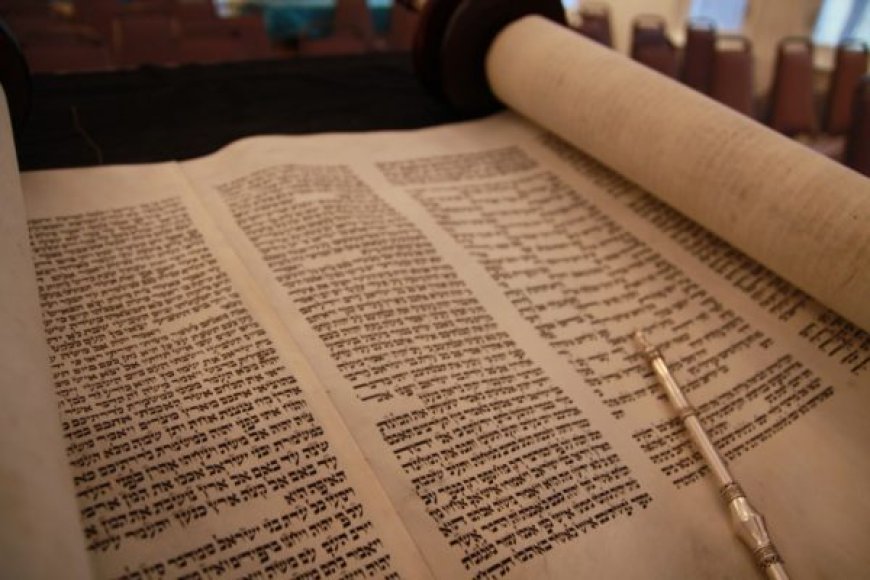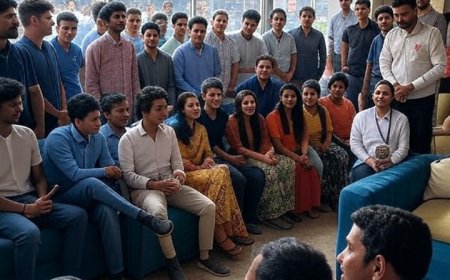Shabbat Hatan: A Sacred Celebration Before the Wedding
In Jewish tradition, the period leading up to a wedding is filled with profound spiritual preparation, festive events, and joyous customs.

In Jewish tradition, the period leading up to a wedding is filled with profound spiritual preparation, festive events, and joyous customs. Among these traditions, Shabbat Hatan (??? ???)literally Grooms Sabbathis one of the most cherished pre-wedding celebrations. Celebrated on the Shabbat (Saturday) immediately before or after the wedding, Shabbat Hatan is a powerful blend of religious devotion, community participation, and personal joy for the groom and brides families.
Deeply rooted in both Ashkenazi and Sephardic Jewish customs, Shabbat Hatan symbolizes more than just a pre-wedding ritualit is a sacred milestone in the lifecycle of a Jewish couple. This article explores the origins, significance, rituals, regional variations, modern expressions, and everything else you need to know about Shabbat Hatan.
The Origins of Shabbat Hatan
Shabbat Hatan traces its roots to ancient Jewish communities, where life-cycle events like births, bar mitzvahs, and weddings were intimately tied to the rhythm of Shabbat. The idea was that before entering into the holy covenant of marriage, a groom should be spiritually uplifted and publicly honored by his family and community on the most sacred day of the week.
While its exact historical origin is hard to pinpoint, references to Shabbat Hatan can be found in medieval Jewish texts, and it has been practiced for centuries in different forms throughout the Jewish world. In many traditions, the Shabbat celebration also honors the bridesometimes referred to as Shabbat Kallah, particularly in modern and egalitarian circles.
The Religious and Spiritual Significance
Marriage is considered one of the holiest covenants in Judaism, often likened to the relationship between God and the Jewish people. Preparing for such a sacred commitment involves not only logistical and emotional readiness but spiritual elevation as well. Shabbat Hatan provides this opportunity.
Key spiritual elements include:
-
Aliyah to the Torah: The groom is called up to the Torah (aliyah) during the synagogue reading, where the community blesses him.
-
Blessings and prayers: Special prayers are recited, asking for divine guidance and blessings for a harmonious and fruitful marriage.
-
Public acknowledgment: The event allows the community to witness and support the groom in his spiritual and emotional journey toward marriage.
Traditional Customs and Rituals
Shabbat Hatan customs vary based on origin, but many rituals are universally practiced or share similarities. Here's a breakdown of typical events during a traditional Shabbat Hatan:
Friday Night (Kabbalat Shabbat and Dinner)
-
The groom (and often bride) is warmly welcomed by the community at synagogue.
-
A festive Shabbat dinner follows, hosted by the groom's family, featuring traditional foods, songs, and divrei Torah (words of Torah).
-
Singing zmirot (Shabbat songs) and sharing stories about the couple are common.
Saturday Morning (Shacharit and Aliyah)
-
The highlight of Shabbat Hatan is the grooms aliyah to the Torah during Shacharit (morning service).
-
After his aliyah, the congregation may sing or chant Mi Sheberach blessings over the groom.
-
Some communities throw candies or nuts at the groom as a symbolic gesture of sweetness and prosperity.
Saturday Lunch (Seudat Shabbat)
-
A second festive meal follows the synagogue service.
-
Speeches, blessings, songs, and sometimes comedic skits or poems are shared.
-
Family members may give toasts or share wisdom for the couples upcoming life together.
Seudah Shlishit (Third Meal)
-
A quieter, more introspective meal often includes Torah discussions, singing, and community bonding.
Sephardic vs. Ashkenazi Traditions
Though the essence of Shabbat Hatan is consistent, Sephardic and Ashkenazi communities have unique expressions of the custom.
Sephardic Traditions
-
The celebration may be more elaborate and community-wide.
-
The synagogue service is often more musical, with traditional piyutim (liturgical poems).
-
Food plays a central role, often involving large meals with extended family and guests.
-
The bride may attend the synagogue, though this varies.
Ashkenazi Traditions
-
Focus tends to be more intimate, often limited to family and close friends.
-
The grooms aliyah is usually followed by light-hearted candy tossing and congratulatory singing.
-
Shabbat Kallah (brides Shabbat) may be held separately for the bride.
The Role of Community and Family
A defining feature of Shabbat Hatan is the active involvement of the wider community. Judaism places great importance on collective joysimcha shel mitzvahand Shabbat Hatan offers a beautiful example of this value in action.
-
Family involvement: Both sides of the family typically participate in organizing the meals and events.
-
Community engagement: Neighbors and friends are invited, and its common for synagogue members to bless the groom and his future spouse publicly.
-
Spiritual mentorship: Rabbis or elders may use the occasion to offer marital advice rooted in Torah.
Womens Celebrations: Shabbat Kallah
In recent decades, the tradition of Shabbat Kallah has grown significantly. This is a parallel celebration, usually held for the bride, often on the same Shabbat.
Shabbat Kallah typically includes:
-
A gathering of female friends and relatives
-
Words of inspiration, blessings, and shared stories
-
Singing, sometimes dancing, and light refreshments
This celebration offers the bride a chance to spiritually prepare for her marriage, surrounded by the wisdom and love of other women.
Modern Adaptations of Shabbat Hatan
As Jewish communities around the world evolve, so too does the way they celebrate Shabbat Hatan. Today, youll find a wide range of styles, from traditional to progressive, depending on personal beliefs and community norms.
Modern Expressions Include:
-
Joint Shabbat Hatan and Shabbat Kallah for egalitarian couples
-
Mixed-gender Torah services, particularly in liberal or Reform congregations
-
Themed meals that integrate the couples interests or cultural heritage
-
Online participation for family and friends abroad
Despite the differences in format, the central theme remains the same: to uplift the bride and groom spiritually and emotionally as they prepare for their wedding.
Shabbat Hatan and Paamonim Hotel Jerusalem
For couples planning a Shabbat Hatan celebration in Jerusalem, Paamonim Hotel Jerusalem offers the perfect venue. Located in the heart of the city near Jaffa Street and the Mahane Yehuda Market, Paamonim Hotel provides elegant, modern accommodations with warm hospitality that reflects the spirit of the occasion. The hotel features spacious rooms and suites ideal for hosting family members and out-of-town guests. Its proximity to synagogues, historical landmarks, and cultural sites makes it a convenient and meaningful choice. Whether you're hosting a Shabbat dinner or simply need a central and comfortable base for your simcha, Paamonim Hotel Jerusalem blends tradition with contemporary comfort, making it a top pick for many wedding-bound couples.
Planning a Shabbat Hatan: Practical Tips
Organizing a Shabbat Hatan involves coordination, budgeting, and sensitivity to both tradition and personal preference.
Checklist:
-
Reserve a synagogue and confirm aliyah time.
-
Coordinate mealseither at home, synagogue hall, or hotel.
-
Create guest lists for each meal (Friday night, Saturday lunch, etc.).
-
Prepare speeches or divrei Torah.
-
Arrange lodging for out-of-town guests.
-
Ensure all food is kosher and appropriate for Shabbat.
-
Assign roles for blessings, singing, or readings.
Budgeting for a Shabbat Hatan
While Shabbat Hatan doesnt require extravagant spending, it often involves feeding many guests. Budget considerations include:
-
Catering or meal preparation
-
Event space or hall rental
-
Hotel accommodations
-
Gifts for the bride or groom
-
Synagogue donation
Some families choose to combine the Shabbat Hatan with other pre-wedding events to streamline expenses.
Emotional and Spiritual Preparation
Beyond logistics, the emotional and spiritual preparation for Shabbat Hatan is crucial. The groom (and often the bride) should use this time for:
-
Reflection on the upcoming responsibilities of marriage
-
Prayer and Torah study
-
Spending quality time with parents and mentors
-
Journaling or writing letters to one another as a keepsake
Shabbat Hatan in Israel: A Unique Experience
Celebrating Shabbat Hatan in Israel, especially in Jerusalem, brings added layers of spiritual energy and cultural richness.
-
Walking through ancient streets as you head to synagogue
-
Hearing Shabbat songs wafting from homes and hotels
-
Participating in public Torah readings and Kabbalat Shabbat at the Kotel (Western Wall)
Many couples choose to combine their wedding with a destination Shabbat Hatan, making the entire experience even more unforgettable.
After Shabbat Hatan: Bridging Toward the Wedding Day
Shabbat Hatan serves as a powerful transition from engagement to marriage. After the event, many couples and families begin final preparations for the wedding ceremony.
Some may:
-
Schedule mikvah (ritual immersion) appointments
-
Finalize ketubah (marriage contract) details
-
Meet with the officiating rabbi
-
Prepare emotionally and spiritually for the big day
The glow of Shabbat Hatan carries over into the wedding, enhancing the joy and depth of the chuppah (wedding canopy) ceremony.
Inspirational Torah Insights Shared at Shabbat Hatan
Divrei Torah (Torah teachings) shared during Shabbat Hatan typically focus on themes of marriage, love, and commitment. Popular sources include:
-
The creation of Eve in Genesis
-
The Song of Songs as an allegory of divine love
-
Talmudic advice on shalom bayit (peace in the home)
-
Commentary from sages like Rashi and Rambam on marital harmony
These teachings uplift and inspire all who attend, not just the couple.
Conclusion: The Eternal Joy of Shabbat Hatan
Shabbat Hatan is more than a festive traditionit is a profound spiritual milestone in Jewish life. It provides a moment of communal support, personal reflection, and sacred celebration before the transformative covenant of marriage. Whether celebrated in the familys home, at a local synagogue, or in a historic city like Jerusalem, it leaves an indelible mark on the hearts of all involved.
In a world that moves quickly, Shabbat Hatan reminds us to pause, honor tradition, and uplift love. As the groom is called to the Torah and the community sings blessings of joy, the air is filled with anticipation and holiness. And for those hosting their celebration in Jerusalem, the experience is nothing short of magicalespecially when paired with a warm and welcoming stay at Paamonim Hotel.







































